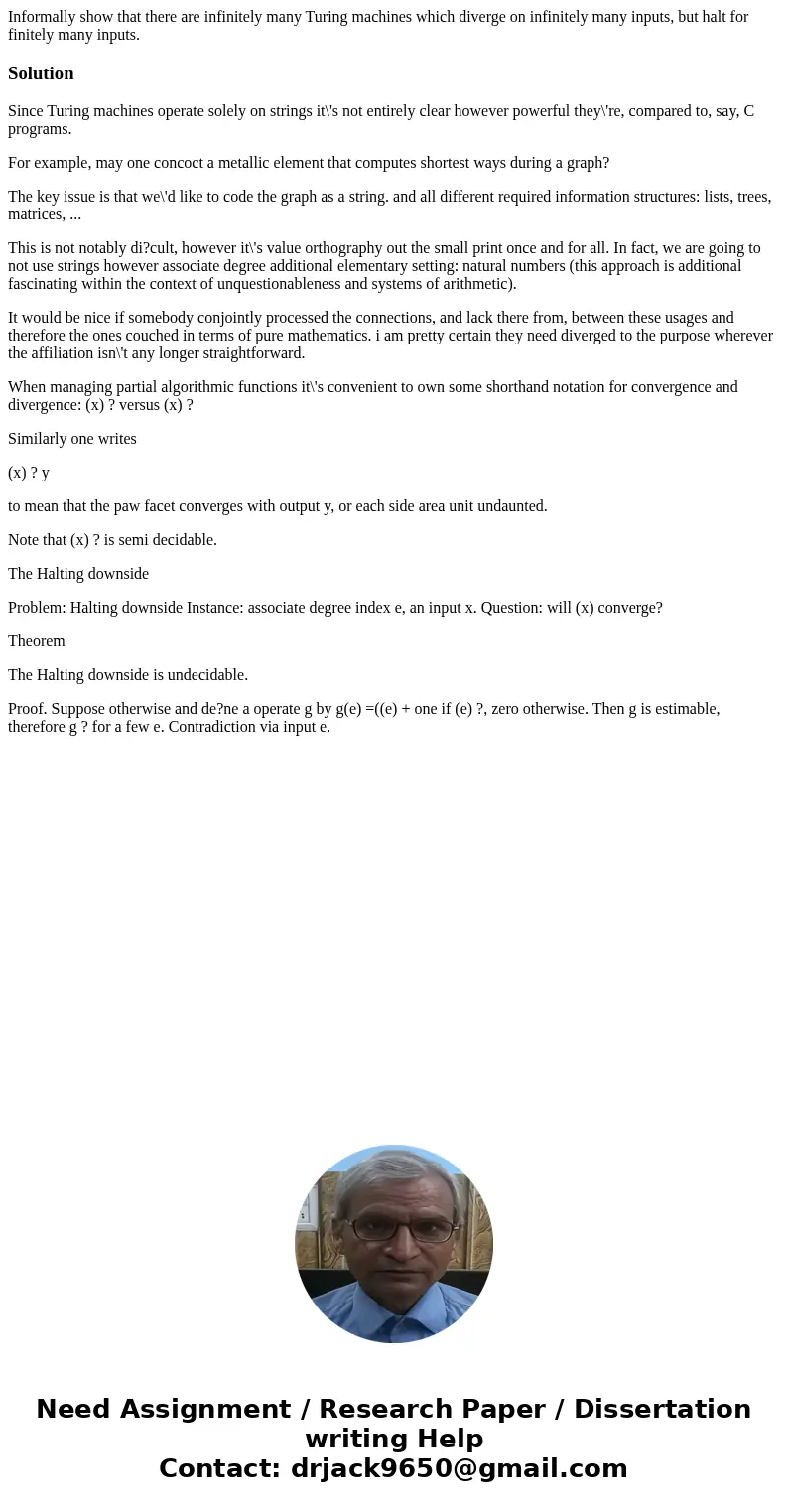Informally show that there are infinitely many Turing machin
Informally show that there are infinitely many Turing machines which diverge on infinitely many inputs, but halt for finitely many inputs.
Solution
Since Turing machines operate solely on strings it\'s not entirely clear however powerful they\'re, compared to, say, C programs.
For example, may one concoct a metallic element that computes shortest ways during a graph?
The key issue is that we\'d like to code the graph as a string. and all different required information structures: lists, trees, matrices, ...
This is not notably di?cult, however it\'s value orthography out the small print once and for all. In fact, we are going to not use strings however associate degree additional elementary setting: natural numbers (this approach is additional fascinating within the context of unquestionableness and systems of arithmetic).
It would be nice if somebody conjointly processed the connections, and lack there from, between these usages and therefore the ones couched in terms of pure mathematics. i am pretty certain they need diverged to the purpose wherever the affiliation isn\'t any longer straightforward.
When managing partial algorithmic functions it\'s convenient to own some shorthand notation for convergence and divergence: (x) ? versus (x) ?
Similarly one writes
(x) ? y
to mean that the paw facet converges with output y, or each side area unit undaunted.
Note that (x) ? is semi decidable.
The Halting downside
Problem: Halting downside Instance: associate degree index e, an input x. Question: will (x) converge?
Theorem
The Halting downside is undecidable.
Proof. Suppose otherwise and de?ne a operate g by g(e) =((e) + one if (e) ?, zero otherwise. Then g is estimable, therefore g ? for a few e. Contradiction via input e.

 Homework Sourse
Homework Sourse